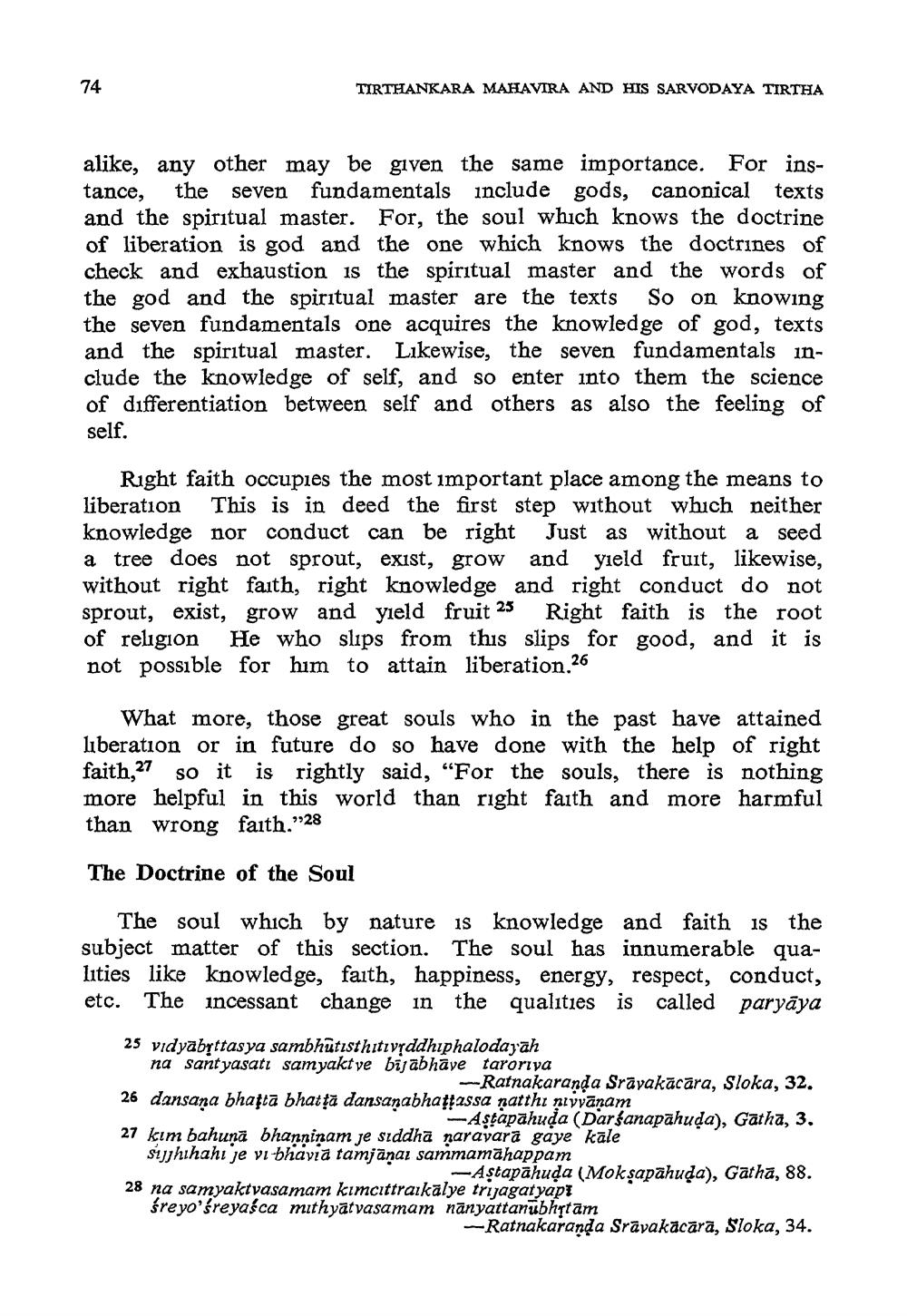________________
74
TIRTHANKARA MAHAVIRA AND HIS SARVODAYA TIRTHA
alike, any other may be given the same importance. For instance, the seven fundamentals include gods, canonical texts and the spiritual master. For, the soul which knows the doctrine of liberation is god and the one which knows the doctrines of check and exhaustion is the spiritual master and the words of the god and the spiritual master are the texts So on knowing the seven fundamentals one acquires the knowledge of god, texts and the spiritual master. Likewise, the seven fundamentals include the knowledge of self, and so enter into them the science of differentiation between self and others as also the feeling of self.
Right faith occupies the most important place among the means to liberation This is in deed the first step without which neither knowledge nor conduct can be right Just as without a seed a tree does not sprout, exist, grow and yield fruit, likewise, without right faith, right knowledge and right conduct do not sprout, exist, grow and yield fruit 25 Right faith is the root of religion He who slips from this slips for good, and it is not possible for him to attain liberation.26
What more, those great souls who in the past have attained liberation or in future do so have done with the help of right faith,27 so it is rightly said, "For the souls, there is nothing more helpful in this world than right faith and more harmful than wrong faith."28
The Doctrine of the Soul
The soul which by nature is knowledge and faith is the subject matter of this section. The soul has innumerable qualities like knowledge, faith, happiness, energy, respect, conduct, The incessant change in the qualities is called paryaya
etc.
25 vidyabṛttasya sambhutisthitivṛddhiphalodayah na santyasati samyakt ve bijabhave taroriva -Ratnakaranda Sravakacara, Sloka, 32. 26 dansana bhatta bhatta dansaṇabhaṭṭassa natthi nivvānam -Astapahuda (Darśanapahuḍa), Gāthā, 3.
27 kim bahuna bhanninam je siddha naravara gaye kale Sijjhihahi je vi bhavia tamjanai sammamahappam
-Astapahuḍa (Mokṣapahuḍa), Gatha, 88.
28 na samyaktvasamam kimcittraikalye trijagatyapt śreyo'śreyasca mithyatvasamam nanyattanubhṛtam -Ratnakaranda Srāvakācārā, Sloka, 34.




